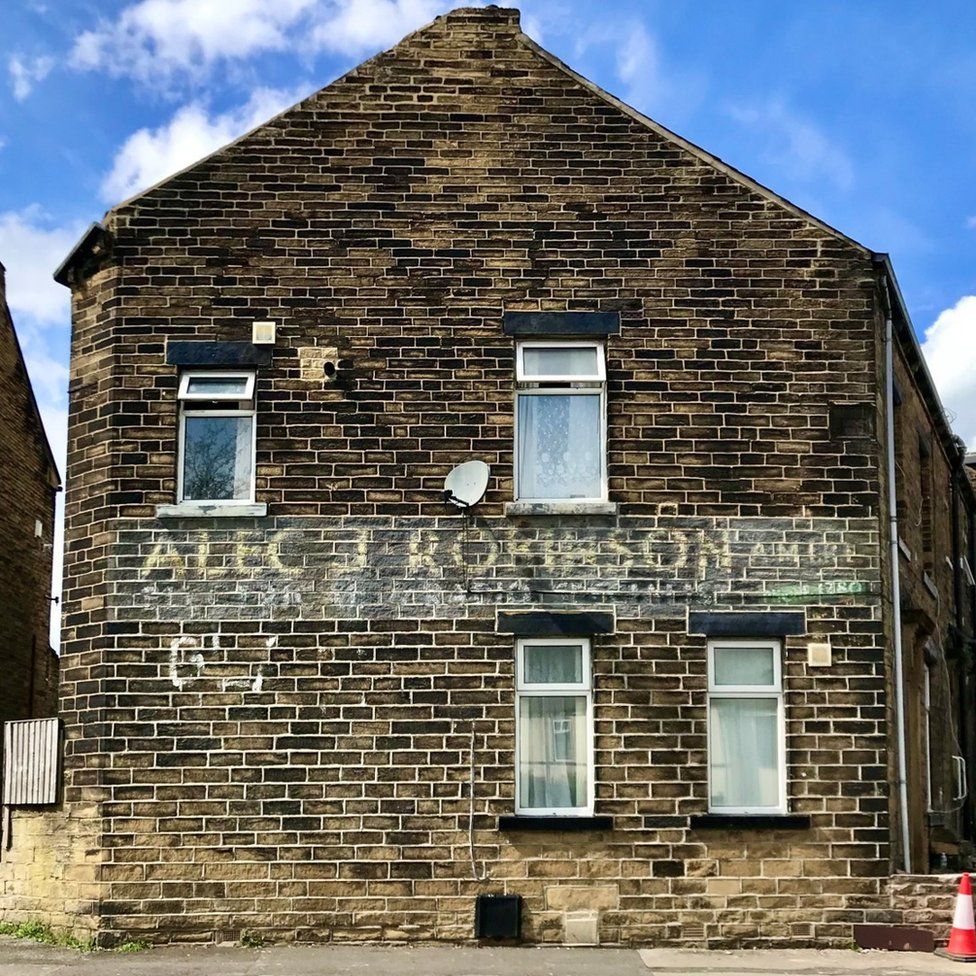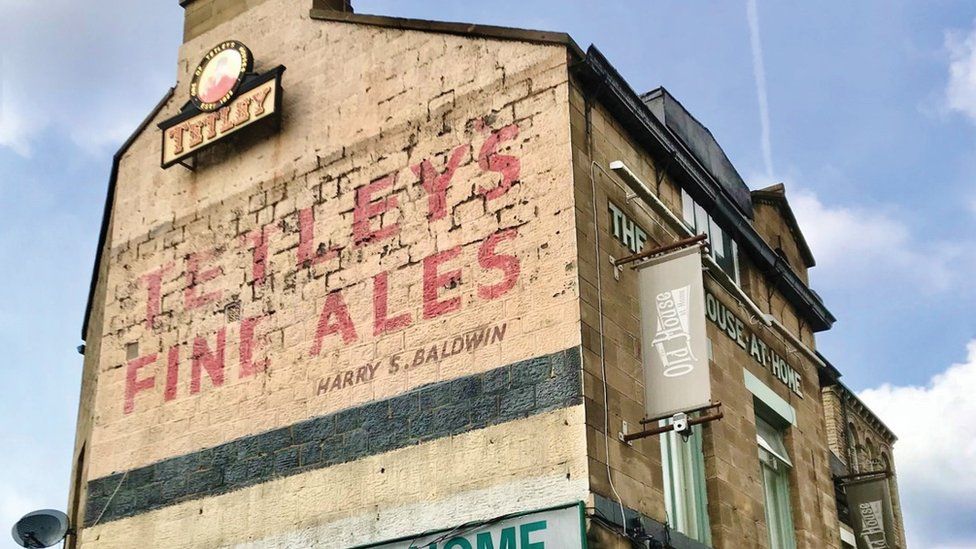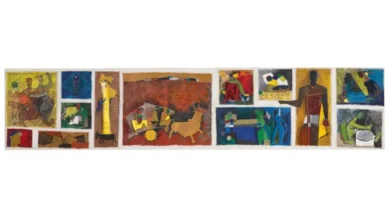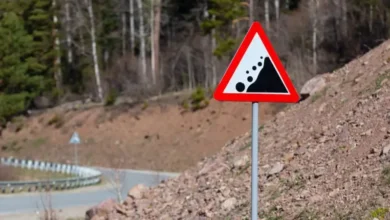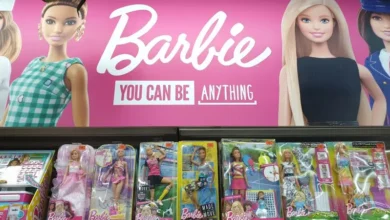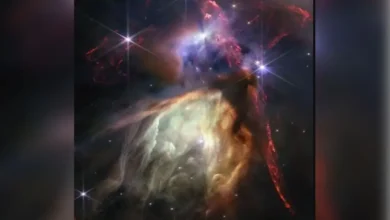Ghost signs: Bradford’s faded adverts photographed
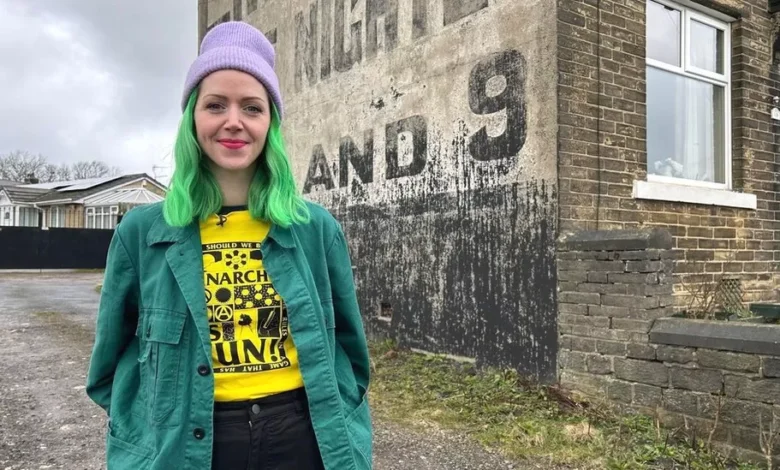
The flaky remnants of adverts painted onto the walls of Bradford buildings years ago are being recorded by photographer Jenna Greenwood.
Known as ghost signs, images of the faded advertising for cigarettes, medicines and even a cinema have been put together in a fanzine.
“I wanted to document them before they disappeared,” Ms Greenwood said.
“The landscape in Bradford is changing quite rapidly, and we’re losing quite a lot of our buildings and shopfronts.
“It’s a look into what we used to have – they say ‘bold will hold’ and there’s a lot of truth in that – they still look good”.
Ms Greenwood, who grew up in the West Yorkshire city but now lives in Tadcaster, North Yorkshire, took me on a tour of some of her favourite signs, starting with one on the side of a terraced house on Reevy Road, Wibsey.
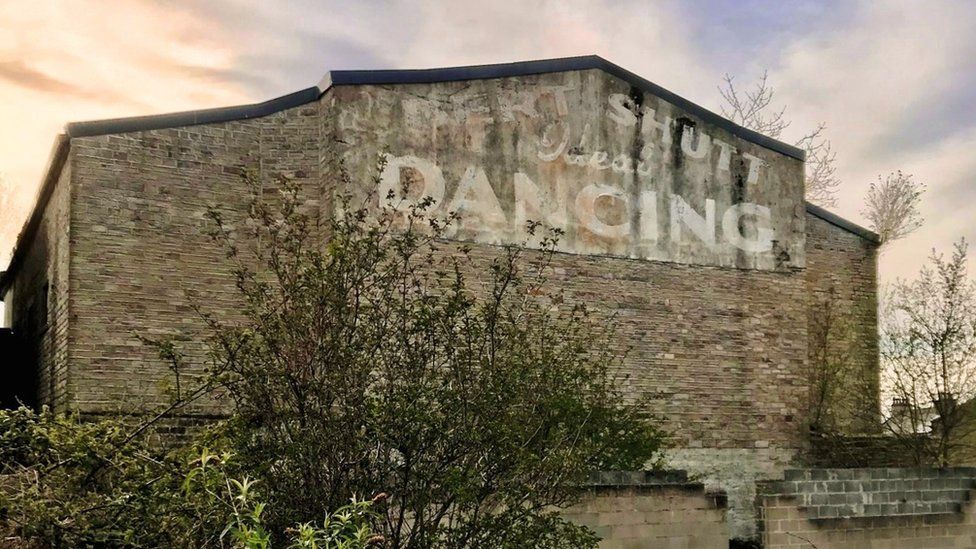
The painted hoarding is advertising cinema tickets for The Empire, which originally opened as a music hall in 1899, but became a picture house in 1918 after the opening of nearby theatre The Alhambra led to a decline in ticket sales.
The black and white typography is still visible, if faded.
“It’s definitely up there with my favourites,” she said. “It is still really bold and just as clear as the day it was painted”.
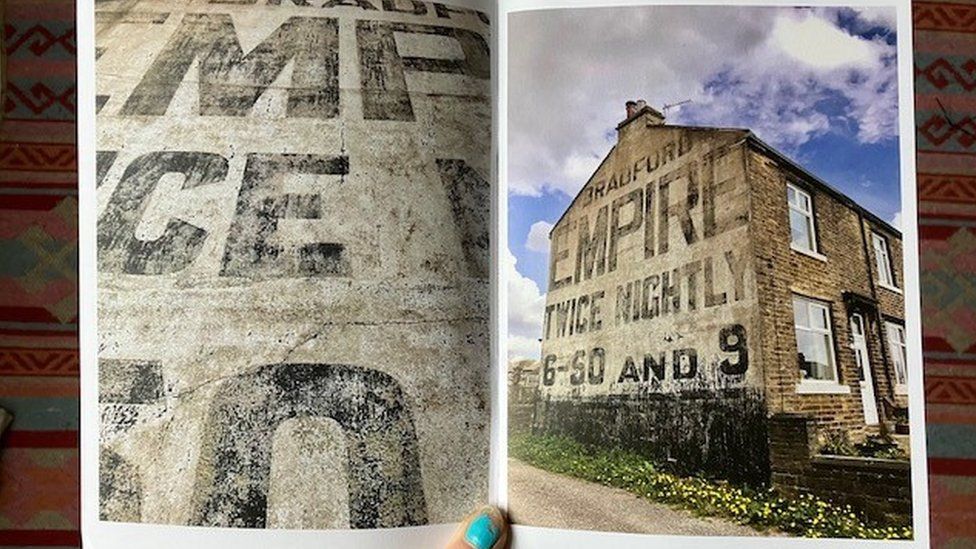
We moved on to see signs for Parkinson’s sugar-coated pills, and Player’s Navy Cut cigarettes, all within a few kilometres of each other.
Ms Greenwood, who works as an artist and signwriter, drew inspiration from Leeds documentary photographer Peter Mitchell, who photographed the city from the 1970s onwards.
His Instagram account Strangely Familiar is named after one of his collections and has gained 96,700 followers.
She said: “After seeing how a lot of the things he has photographed now don’t exist, I wanted to create a record of the stuff in Bradford for other people to enjoy in 30 years.
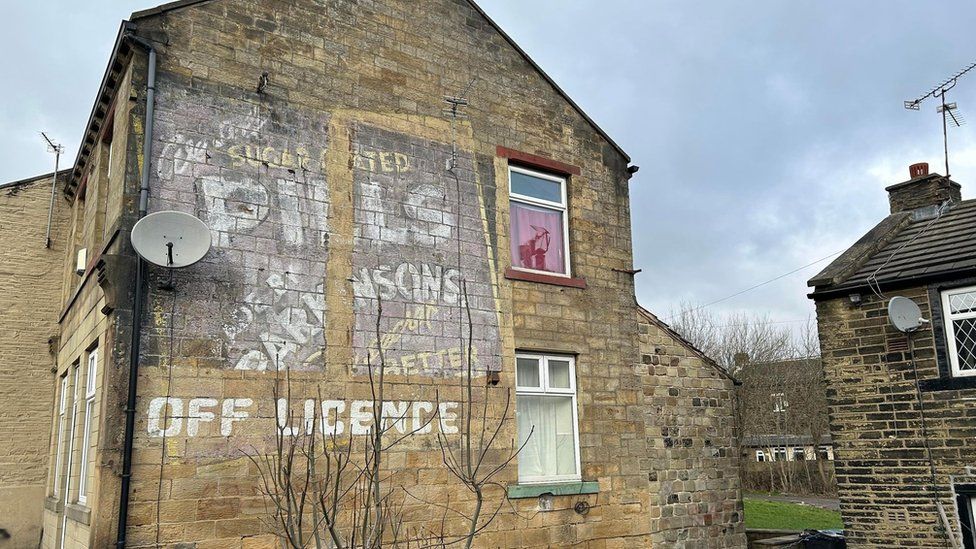
“These signs were made to last 10 or 20 years, and we just don’t get that now.
“It’s the contrast between things being made to last and the really transient advertising that we see now that really interested me.
“Certainly in my lifetime, we’ve gone from paste-up billboards to electric advertising spaces that rotate every five seconds.
“We are so desensitised to advertising now. Whereas these were made to last”.
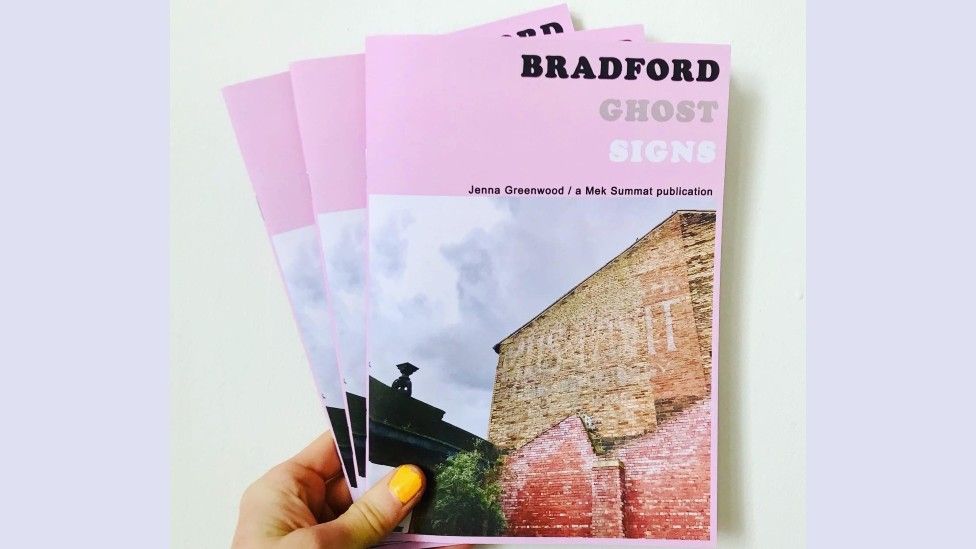
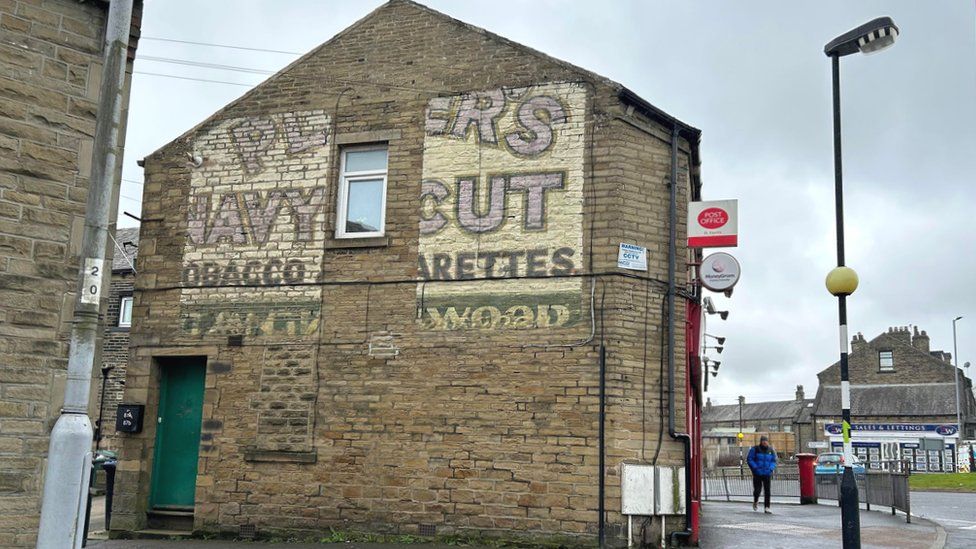
The 37-year-old said it’s the “old charm of the original artworks” which interest her, rather than the ones which have been re-painted.
She saw a lot of signs old and new during trips in the United States, another thing which prompted her to start the fanzine.
“I did quite a lot of road trips in California, where signwriting is still a prevalent profession.
“A lot of buildings there stay up after the businesses have gone. That piqued my interest, and then when I was back home, because they were relevant to me I started noticing them more, and I thought, I need to start taking pictures before they disappear”.
The 24-page A5-sized collection was published last May, with issue number two now under way.
“Usually if I’m driving or walking somewhere and I see a new ghost sign, I think my first instinct is excitement – and sort of like a bit of promise as well,” she said.
“It’s a peek into history that we never knew that we had”.
Bradford councillor Si Cunningham, who worked on the city’s UK City of Culture 2025 bid, said the ghost signs were evidence of Bradford’s industrial past but also showed its links to the creative industries.
He said: “The ghost signs that Jenna is celebrating are effectively early marketing for a lot of the businesses that were thriving at the time.
“One of the huge drivers behind us being awarded UK City of Culture is having a city that is rich in urban graphic design, to an extent that there have often been pilgrimages to the city by people who are interested in these ideas.
“You might find that people are just as inspired by the urban landscape as they are the rural landscape that surrounds us here”.
